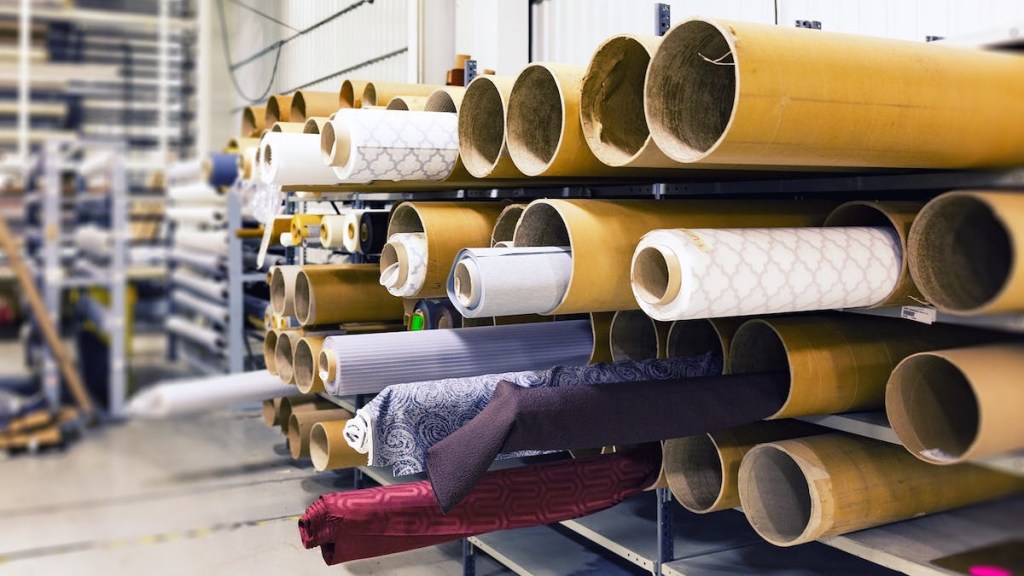– By Akhil Jain
In the bustling world of retail, a silent revolution brews, marking a shift towards a more sustainable and ethical approach to fashion. Gone are the days when sustainability was merely a buzzword; today, it stands at the forefront of the retail industry’s evolution, driven by a confluence of consumer preferences, environmental imperatives, and regulatory pressures. This transformation is not just about changing materials but redefining the ethos of fashion consumption and production. As we navigate this green revolution, understanding its roots, implications, and trajectory becomes essential for consumers and retailers alike.
Sustainable fashion refers to the creation and marketing of clothing and accessories that prioritise environmental and social responsibility throughout their lifecycle. This includes the use of eco-friendly materials, ethical manufacturing processes that ensure fair wages and safe working conditions, designs that promote longevity and versatility, and initiatives aimed at recycling or repurposing garments at the end of their lifecycle. The essence of sustainable fashion lies in minimising the industry’s carbon footprint and mitigating its impact on the planet and its inhabitants.
A significant force behind the surge in sustainable fashion is the evolving consumer mindset. Today’s consumers are more informed and concerned about the environmental impact of their purchases than ever before. Among these, Generation Z stands out as a rapidly rising demographic of consumers, wielding significant influence over market trends. Their fashion preferences and sustainability consciousness are reshaping the industry. Gen Z consumers are not only looking for style and affordability but also demand transparency, sustainability, and ethical practices in their clothing choices. Social media and influencers play a pivotal role in this awakening, highlighting the importance of ethical consumption and showcasing sustainable brands. Grassroots initiatives and social campaigns further empower consumers, including Gen Z, encouraging a shift away from fast fashion towards more responsible choices. This collective awakening signifies a profound change in how we perceive and value our clothing.
Recognising the shifting consumer landscape, forward-thinking retailers are embracing sustainability as a core aspect of their business strategy. From high-street names to luxury brands, the industry is witnessing a wave of innovations aimed at reducing environmental footprints. These include sourcing materials from sustainable suppliers, adopting circular economy principles, and introducing take-back schemes for recycling. However, the transition is fraught with challenges, such as higher operational costs and the need to balance sustainability with profitability. Despite these hurdles, the momentum towards sustainable retailing is undeniable, driven by a combination of consumer demand, competitive advantage, regulatory compliance, and notably, the preferences of the environmentally conscious Gen Z.
While the initial costs of adopting sustainable practices may be higher for retailers, the long-term economic benefits are compelling. Sustainable fashion opens up new markets, appeals to environmentally conscious consumers, including the burgeoning Gen Z demographic, and builds brand loyalty. Moreover, it can lead to cost savings through more efficient use of resources and reduced waste. For consumers, investing in sustainable fashion may mean higher upfront costs, but the durability and timeless design of these garments offer better value over time. Ultimately, the economic rationale for sustainable fashion is clear: what is good for the planet is also good for business.
The future of sustainable fashion is bright, fuelled by innovation in materials, technology, and business models. Biodegradable fabrics, zero-waste production techniques, and blockchain technology for supply chain transparency are just the tip of the iceberg. As these technologies mature, they promise to make sustainable fashion more accessible and affordable. Furthermore, consumer preferences are likely to continue evolving, with a growing emphasis on authenticity, transparency, and impact. Retailers that can adapt to these changes, fostering a culture of sustainability, will thrive in the fashion industry of tomorrow.
The rise of sustainable fashion in retail reflects a broader societal shift towards environmental stewardship and social responsibility. As consumers increasingly opt for brands that align with their values, retailers are responding with innovative practices that prioritise sustainability. This movement is not a trend but a fundamental change in how we produce, consume, and think about fashion. By embracing sustainable practices, both consumers and retailers, especially with the support of Gen Z’s engagement, can contribute to a more sustainable future, proving that fashion can be both beautiful and benevolent.
(Akhil Jain is the Executive Director at MADAME.)
(Disclaimer: Views expressed are personal and do not reflect the official position or policy of Financial Express Online. Reproducing this content without permission is prohibited.)

